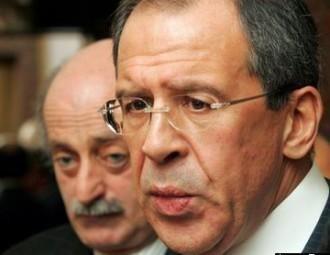OSCE Minsk Group seeks peace deal on Karabakh basic principles, Russian Foreign Minister says
 photo by Reuters
photo by Reuters
The Minister emphasised the need to help Armenia and Azerbaijan “find comfortable formulations for every party”.
“This week the Russian president is planning to have separate meetings with the Armenian and Azerbaijani counterparts in Sochi where the Nagorno-Karabakh issue may be discussed,” he says
The OSCE Minsk Group is exerting maximum effort to adopt a peace deal on the Karabakh basic principles, Russian Foreign Minister Sergei Lavrov said on Monday, August 4.
“Of course, we’re worried about the events on the line of contact in the Nagorno-Karabakh conflict, - ITAR-TASS quotes Lavrov saying. - The parties accuse each other of provocations. That happened earlier. Unfortunately, for many years we watch an escalation in such fighting. Many people died. The OSCE Minsk Group co-chairmen urged the parties to show maximum restraint and prevent further fighting,” he said.
“This week the Russian president is planning to have separate meetings with the Armenian and Azerbaijani counterparts in Sochi where the Nagorno-Karabakh issue may be discussed,” Lavrov said.
“For certain, we’ll talk about strengthening trust and reducing risks of slipping into confrontation,” he said.
“Every party is rather emotional. We’re taking efforts together with the American and French partners to help solve problems that prevent us from signing an agreement on the common principles of a resolution,” Lavrov said.
“Such political resolution would allow us to normalise the climate. It is not easy. Many attempts were made. We seemed to reach an important stage when accord was achieved. But anything held us up that is why I won’t make predictions,” he said.
OSCE Minsk Group is headed by a co-chairmanship consisting of France, Russia and the United States. Furthermore, the Minsk Group also includes the following participating states: Belarus is a regular state that participates in the Minsk Group on a par with Germany, Italy, Portugal, the Netherlands, Sweden, Finland, Turkey, Armenia, and Azerbaijan. It was created in 1992 by the Conference on Security and Cooperation in Europe, now Organization for Security and Co-operation in Europe (OSCE))to encourage a peaceful, negotiated resolution to the conflict between Azerbaijan and Armenia over Nagorno-Karabakh.
-
03.01
-
07.10
-
22.09
-
17.08
-
12.08
-
30.09










































